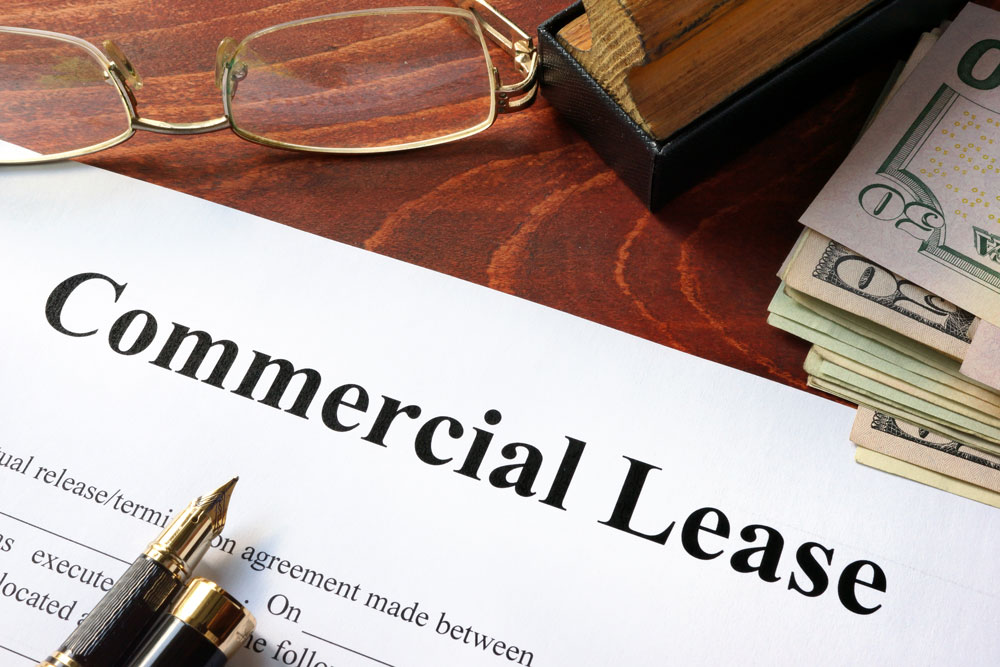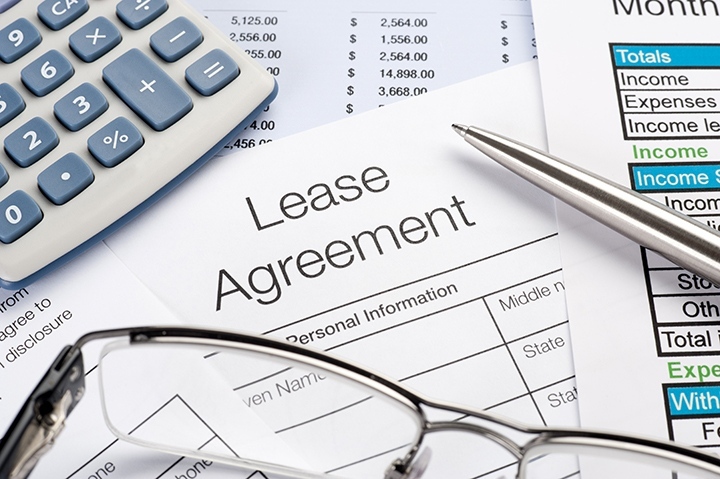 As a commercial real estate broker, I’ve helped many tenants with business issues in their leases. A good real estate attorney can help and should absolutely be brought on. I cannot advise on legal issues. For this article, I will concentrate on what issues tenants should be wary in their lease negotiations and how your attorney may deal with them.
As a commercial real estate broker, I’ve helped many tenants with business issues in their leases. A good real estate attorney can help and should absolutely be brought on. I cannot advise on legal issues. For this article, I will concentrate on what issues tenants should be wary in their lease negotiations and how your attorney may deal with them.
As we enter negotiations, I often advise my clients of the “facts of life” that there are some landlords who are more reasonable than others and some that are just not flexible. It’s important for tenant to know their needs, wants and how much they are willing to negotiate as well as how much you are willing to “give up” when entering the leasing process.
Here are 12 legal issues to consider for negotiations.
- Reasonableness and Good Faith
Numerous provisions are included in a typical lease where the landlord has the right to exercise discretion, make an allocation or determination and where the tenant is prevented from taking certain action without obtaining the landlord’s consent. The landlord typically has numerous statements in the lease providing that the landlord can act in its sole and absolute discretion. A major “markup” of the lease would have to take place unless the tenant is successful in asking the landlord to always act reasonably. Accordingly, your real estate attorney could recommend tenants include a provision defining what is considered reasonable. Here is an example:
“Regardless of any reference in the lease to sole and absolute discretion or words to that effect, but except for matters which (1) could have an adverse effect on the structural integrity of the building structure, (2) could have an adverse effect on the building systems, or (3) could have an effect on the exterior appearance of the building, whereupon in each such case landlord’s duty is to act in good faith and in compliance with the lease, any time the consent of landlord or tenant is required, such consent shall not be unreasonably withheld, conditioned or delayed. Whenever the lease grants landlord or tenant the right to take action, exercise discretion, establish rules and regulations or make allocations or other determinations (other than decisions to exercise expansion, contraction, cancellation, termination or renewal options), landlord and tenant shall act reasonably and in good faith and take no action which might result in the frustration of the reasonable expectations of a sophisticated tenant or landlord concerning the benefits to be enjoyed under the lease.”
- Approval Criteria for Tenant Improvements.

This area is about what the tenant wants to do in the way of improvements with the leased space. Landlords may not want a tenant to make any improvements if they think the changes will make the space less attractive to the next tenant. Thus, your real estate attorney could want to bring up and insert a provision addressing “Approval Criteria” for tenant improvements.
Such a provision would state that the landlord may not withhold or condition the consent to making of an alteration or improvement unless the changes do any of the following: adversely affect the building structure, adversely affect the building systems, not comply with applicable laws, affect the building’s exterior appearance, or unreasonably interfere with the normal and customary business operations of the other tenants in the building.
- Operating Expenses
Operating expenses have become more and more complicated. We have several exclusions that must be included in the lease to protect tenants, and will dive deeper in this area next week.
- Condition of the Premises
Tenants need to ensure they are not surprised by the condition of the premises or “hidden” costs that might be encountered once any tenant improvements begin. Landlords would like to have the tenant agree to accept the premises in its “as-is” condition. The term “as-is” might mean different things to each party and need clearly defined. The tenant needs to request that when the premises are delivered to the tenant for the commencement of business operations or at the start of the construction of the tenant improvements that the property is in first-class condition, in operating order and in compliance with all applicable laws to new construction, disregarding variances and grandfathered/grandmothered rights.
- Commencement Date
It is seldom that the commencement date is properly addressed in a lease. Typically, if the landlord agrees to construct the tenant improvements at no cost to the tenant, then the lease should have a clause agreeing to at least a five-day notice to when the construction will be complete and the tenant is to start paying rent.
The same commencement date provisions should be used when the tenant receives a tenant improvement allowance and the landlord is going to construct the tenant improvements. Tenants need to secure reasonable price protections in this scenario, with lease provisions stating the landlord agrees to bid out major trade items to three subcontractors and honor the normal bidding guidelines when selecting the contracts.
- After-Hours HVAC/Extra Services/Extra Utilities
Many landlords look at the supplying of after-hours HVAC, extra services and extra utilities as a separate profit center. Since the tenant has no choice as to where it is going to get the after-hours HVAC, you need to be protected. Your real estate attorney could typically request that tenants be charged for any after-hour utilities at the landlord’s actual cost, meaning an amount equal to the actual out-of-pocket, incremental extra costs to the landlord without any markup for profit, overhead, depreciation or admin costs.
- Renewal Rights
If a tenant has leased space and the space works for the tenant in the long term, then the tenant may over a period of time put its own money into the space and certainly does not want to be put to the inconvenience of having to move. Tenants should be comfortable in requesting a right to extend the term of the lease and asking that the landlord allow the tenant to exercise that right at a fair definition of market. Often, landlords try to “finesse” this issue by coming up with a definition of market that excludes all concessions, which at a minimum causes a great deal of confusion and at a maximum produces a bad result for the tenant. In addition, many landlords insert a provision stating that the rent will be at the higher of market (which is fair) or the rent in effect during the last month of the lease term (which is not fair). With certainty, this issue must be included in the lease and negotiated prior to signing.
- Assignments and Subleasing
Tenants frequently have a change in their business plan and find that their current space no longer meets their needs, either too much or too little, and thus need out of their current lease. Most leases impose unreasonable restraints on a tenant’s ability to assign or sublet. Landlords’ primary concern should be to make sure that in connection with any assignment or subletting, they are not accepting a subleassee or an assignee who would cause the landlord to be in violation of an exclusive that the landlord has granted to another tenant or which would allow the tenant to sublease or assign to someone who is not comparable in quality and stature to the then-existing tenants in the property.
- Defaults
Most default sections of a lease are unreasonably broad and contain many outdated default provisions, which are unenforceable (such as bankruptcy), unrealistic (as a vacancy in an office project) or overly harsh (e.g., incurable defaults). Accordingly, your real estate attorney could recommend tenants include the following items in a provisional “Event of Default” statement.
(1) Nonpayment of rent. Failure to pay any installment of Rent due and payable hereunder, upon the date when payment is due, such failure continuing for a period of 10 business days after written notice of such failure; or
(2) Other obligations. Failure to perform any obligation, agreement or covenant under the lease, other than tenant’s obligation to pay rent, such failure continuing for 30 calendar days after written notice of such failure or such longer period as is reasonably necessary to remedy such failure, provided that tenant shall continuously and diligently pursue such remedy until such failure is cured.
- Hazardous Materials
The hazardous materials section of most leases is lengthy and difficult to read. However, the tenant can provide essential protections by negotiating for the inclusion of the following provision: “Notwithstanding anything in this lease to the contrary, the liability of the tenant, and any indemnities provided by the tenant, shall not extend to hazardous materials that were not placed on the premises, in the building, or on the land upon which the building is situated by the tenant, or by any of tenant’s agents, contractors and employees. In addition, the landlord shall not include in operating expenses, or pass on to tenant directly or indirectly, the cost incurred by landlord in monitoring, reporting, testing, abating and/or removing hazardous materials that were contained in the premises, in the building and/or on the land upon which the building is situated at the time that the lease was executed.”
- Subordination, Non-Disturbance and Attornment Agreement (SNDA)
While it can be very difficult to obtain an SNDA in a lease transaction, your real estate attorney could recommend that if a tenant can obtain one from any current lender, it a great protection to receive. Typically, if there is a loan, ground lease or prior encumbrance recorded with respect to the building, the lease could terminate in the event of a foreclosure by the lender or holder or the encumbrance. Almost always, the typical Recorded Encumbrance is simply a loan. Since the last downturn in the economy, lenders have been much more willing to enter into SNDA’s with a tenant because most foreclosures occur when there is a downturn in the economy, and lenders want to be in a position where they can make sure that the tenant will not be released from its liability under the lease merely because there has been a foreclosure. Obviously, in a short-term lease, there is less risk.
- Surrender Condition
In order for a tenant to get more realistic protections as to the surrender condition of its premises, your real estate attorney could recommend the inclusion of the following provision:
“Notwithstanding anything in this lease to the contrary, tenant will not have to remove any tenant improvements that existed in the premises on the date the premises were delivered to tenant or which existed in the premises as of the date the lease was executed or made pursuant to the work letter or the alterations section of the lease as long as such tenant improvements constitute normal and customary business office improvements and in no event shall tenant be required to repaint, replace, repair or patch wall or floor coverings or patch small holes in the walls and floors or remove cables, wiring or conduits not installed by or on behalf of tenant.”
CONCLUSION
Every lease transaction is at the same time standard and unique. A good broker and/or attorney needs to understand its client’s business and needs in order to determine which provisions should be included in the negotiations. Contact us; we’re here to help.
Some wording taken from PLI’s Course Handbook, Negotiating Commercial Leases: How Owners & Corporate Occupants Can Avoid Costly Errors.
